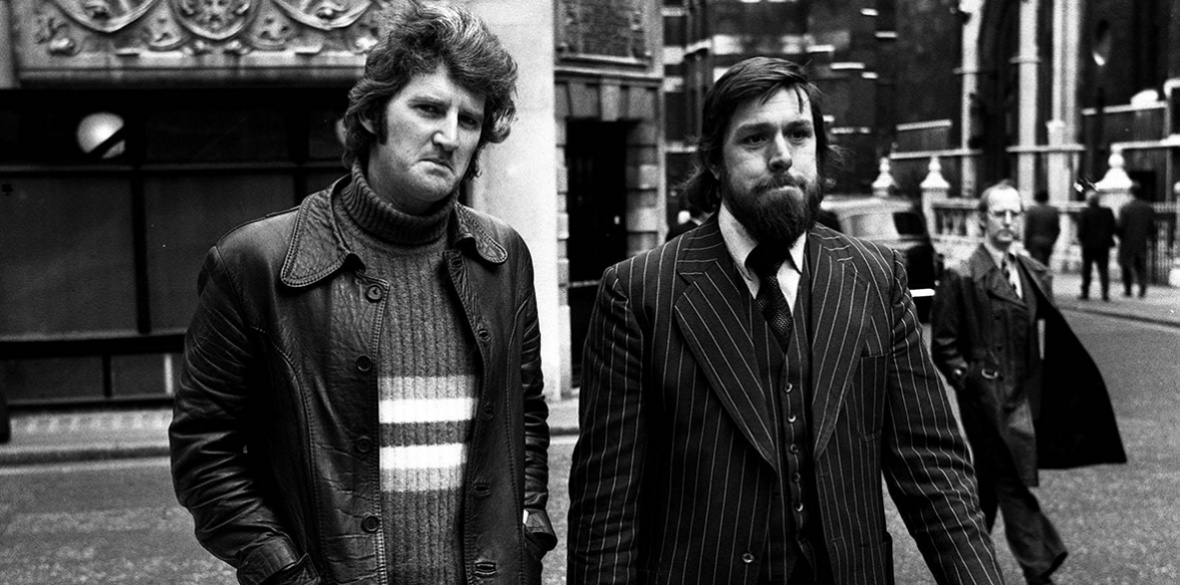THE Court of Appeal’s finding that all the Shrewsbury Pickets convictions were unsafe is a complete vindication of courageous trade unionists victimised by the British state.
This is a tremendous victory for the determined campaigners who never gave up on justice. The tragedy is that it comes too late for some.
Nearly five decades have passed since 24 building workers were prosecuted for picketing during the first national builders’ strike. Several died before their names were cleared, including Des Warren, whose three-year jail sentence was the longest handed down.
His health was broken in prison and he was blacklisted on release; he never worked again.
Yet this was no mere miscarriage of justice. The grounds on which the Court of Appeal has found “the convictions of all the appellants … unsafe” are that police destroyed original witness statements, something uncovered by Shrewsbury 24 Campaign researcher Eileen Turnbull decades later.
As the Public Interest Law Centre points out: “It is important to note that the statements were destroyed rather than lost … a decision was taken to actively dispose of them in such a way that they could not be recovered.”
The implication is that police got rid of original witness statements because they had amended versions more likely to secure a conviction. In the words of picket Terry Renshaw: “The police and the prosecuting authorities used every trick in the book to secure guilty verdicts even if it meant … manipulating the evidence.”
Given that one of the charges on which Warren, Ricky Tomlinson and John McKinsie were jailed in 1973 was “conspiracy to intimidate,” we must ask what intimidation may have been applied by police to produce more damning statements about the accused.
The Shrewsbury Pickets’ trial was a thoroughly political affair. It formed part of a co-ordinated attack by building industry bosses and the Conservative government on trade unionists in the construction industry, revenge for the latter’s victory in the 1972 national strike in which flying pickets had been deployed to great effect.
A concerted propaganda assault on trade unions was launched during the trial, with ITV broadcasting a documentary, Red Under the Bed, which featured footage of Warren and Tomlinson in a way which implied, wrongly, that they were linked to picket line violence.
The British state had a hand in the “documentary” via a covert agency inside the Foreign Office called the Information Research Department.
The significance of all this can hardly be overstated for today’s labour movement, which is constrained by harsher repressive legislation than that of the 1970s.
Not only is secondary picketing illegal, but the right to strike itself is now heavily curtailed, subject to arbitrary ballot thresholds even while legislation prevents unions from making participation easier through secure online balloting.
The role of the mass media in demonising socialists is just as pervasive today — as all of us on the left have good cause to know following five years in which a rare socialist leader of the Labour Party was subjected to relentless and mendacious character assassination by every major newspaper and broadcaster in Britain.
And the current government is legislating to give police near-total discretion to arrest protesters — with a police officer’s opinion on whether you are causing “serious annoyance” enough to secure a conviction that could send you to prison for 10 years.
Our whole movement will extend congratulations to the Shrewsbury Pickets following a judgement which results from decades of very hard work.
But questions abound around the secret state’s involvement in the original trial. A full public inquiry into state involvement in blacklisting in the construction industry is more than justified.
And what we are learning about the behaviour of industry bosses, the police and the state in the 1970s must be applied to our own time. We must unite to defeat another Tory government, 50 years on, that is bent on criminalising resistance.








